-
Posts
62 -
Joined
-
Last visited
Content Type
Forums
Gallery
Store
Posts posted by tonymuricy
-
-
Hi Guys!
I am Tony Muricy, a location sound man based in Rio de Janeiro. Many years of international experience and full gear. Fiction, documentary, series.
Our actual disgrace, I mean, president, is busting out film industry here, so I am available to international works if needed, anywhere in Brazil or Latin America.
My IMDB: https://www.imdb.com/name/nm0613888/?ref_=nmawd_awd_nm
Cheers
-
Hey Larry!
I was thinking about this RF amp, if it could be the source of the problem.
I don't really have it's specs, it's a cheap chinese one I found in our brazilian Ebay equivalent.
I thought about trying the PSC RF Multi SMA as amp, but I'll take a look at your Lectro suggestion!
Do you know where I can buy it?
Thanks!
Tony
-
Hi Folks!
So I did my own SMA antenna mod on my Sennheiser G3 receivers.
And I said, ok, If they now have the sma plugs, it might be a good idea to have and external LPDA antenna to then, so this way I could have all my rx on my cart, and have then with longer range!
So I bough a rf passive splitter from 1 in to 2 outputs, and 2 passive splitter with 1 in to 4 outputs, this way I could send 1 antenna signal to 8 rx.
I bought a LPDA printed antenna which claims to have 18dB of gain. To compensate for rf loss on the passive splitters, I also bought a chinese RF amplifier circuit with more 20dB of gain. As I knew all this amplification this could overload the receivers, in the other hand, I bought a variable resistor, which went just after the RF amp circuit, before the passive distro circuits. This way I could turn down amplification before overloading my receivers, by checking effective RF gain in the receivers screens.
It did worked, in one side! I did have a strong signal with all my rx in my cart, the boost was very visible when I did power on the RF circuit amp! Great!
But there is one problem - everything is going fine, and suddenly rf signal drops in intensity violently, and audio is lost.
I couldn't find out if this was external interference or an internal problem with my system - maybe it is overloading rf gain anyway. But the RF signal in the receivers looses intensity, it is not going up is going down!
This became happening very frequently, so I had to go back to my old system - to have my RX grouped on a tripod near the border of the set, and have a multicable bring audio to my cart. The old system proved more stable than the new one.
Maybe I should try to have two sam antennas on each receiver - doubling this set up, so I could take advantage of the best signal on each antenna.
I'm not an engineer, so I have limited knowledge on these subjects.
What I am doing wrong? Everything maybe?
I know this whole thing may sound a bit crazy, but when you live in a country were 1 dollar is 4 times 1 real, and everything you bring officially in pays 100% in taxes, it makes sense to try to get the most of the minimum, you understand.
I am attaching some pictures and any suggestion or ideas will be most welcome.
Thanks
Tony Muricy - Rio de Janeiro, Brazil.
I forgot to say that I goy a 15m long sma cable to connect my LPDA antenna to my rf amplifier on my cart. This way I can move the antenna to the best spot.
Thanks
-
On 1/29/2015 at 2:22 AM, Jeff Wexler said:
I will be happy to get some stories together for you. In terms of what was used on any given movie, I can give you some guidelines: the first model of Nagra that was used on a motion picture would be the Nagra III (the Nagra I and II never made it to the movie world). The Nagra did come into general usage on feature films until around 1964. It is safe to say that any movie done from 1965 to 1989 would have used some model of Nagra. The year 1989 is significant because that was the year that I used a DAT machine to record production sound on a motion picture --- no one else had tried this relatively new format but I gave it a go on "The War of the Roses." Many, many movies were recorded using the Nagra well into the 1990s even as DAT became a very common format.
I owned and used just about every model of Nagra except for the Nagra I, II, and the Nagra-D. I owned a Nagra III, Nagra 4L, Nagra 4.2, Nagra SN, Nagra-IS, Nagra 4S, Nagra 4STC. Also used a Stellavox on 2 documentaries (but never owned one).
Hi Jeff!
I read this article of you because I also worked with a Nagra 4.2L when I started and I loved it.
So I started reading these posts here and found this info that, If I got it well, you were the first guy here to use a DAT recorder on a feature film back in 1989.
The interesting thing is that here in Brazil we started using DATs to record in the second semester of 1984!
There were six soundman - me included - from Rio de Janeiro that came to US in 1984 to shoot FIFA's Official Film of 1994 Soccer World Cup.
Before I came I sold my Nagra 4.2 to my assistant in Rio, and arranged with producers to arrive in LA a few days earlier to buy new equipment for this shoot.
I went to Location Sound and bought with Jose Gonzales a PSC M4 mixer and a Sony TCD-D10 DAT recorder.
My colleagues also bought Sony's DATs, a bigger model, not the TCD-D10 one.
I recorded the whole 1994 World Cup with this set up, and when we came back to Rio all of us kept using our super new DATs in docs and features!
But I never realized we did this some 4 or 5 years before you did it here!
Interesting!
Tony Muricy
-
I
On 3/31/2018 at 10:52 PM, mikewest said:I love my CS-1 and CS-2 Sankens as well as my CSS-5
Looking at the polar response the CS-M1 has a slightly wider pattern than the CS-1
Again looking a front to back ratio
CS-1 is -14.5dB @ 1Khz and -24dB @ 4 and 8 kHz
CS-1M is -10.0dB @ 1 kHz and -18dB @ 4kHz and -16dB @ 8kHz
Hence it is more of a cardioid but at last a much better roll of below 100Hz
No doubt a very good choice for interior drama work
mike
So you use CS-1 for drama work, Mike?
That's exactly something I would do too.
I've used Sennheiser's MKH 416 and MKH70 for years until I tried Sankens, and then I switched to CS2 and CS3, so why not have the CS1 or the CS1M for closer work or on low ceilings or small tight places? The small size of the CS-1M makes it very interesting, I think.
I'll try it asap, for sure.
Thanks
Tony
-
Chris
my main market are fiction and documentaries. For documentaries I am more the happy with my Sanken CS-2.
For fiction and sometimes for docs need a smaller mike to use inside cars, on low ceilings locations, etc. As I said, the MKH 50 would be a natural choice, except that I'd like to keep the Sanken "signature".
So if this CS-M1 mike sounds alike it's bigger brothers CS-2 and CS-3 I think it could be a good choice for me.
-
I love my Sanken CS2 and CS3e, but many times I need a smaller directional mike.
I know MKH 50 is highly praised, but I would like to have a small mike with the Sanken sound, so I'm curious if this one could be a better option than CS-1 mike.
-
I've just seem an announcement from Gotham Sound about a new Sanken mike, the CS-M1.
https://www.gothamsound.com/product/cs-m1-compact-shotgun-microphone
Anyone has tried it already?
Thanks
Tony Muricy
-
I also think it's weird to record interior sounds in such a situation, but anyway I would try the Beyer Dynamic M88TG, great mike! Goes up to 150dB by the specs.
-
Hi Guys!
Is there any news about Lectrosonics making new receptors blocs for the Venue System in the same concept as the new L series systems?
This would be great I believe!Thanks
Tony Muricy
Rio de Janeiro - Brazil
-
I love to spread wireless lavs around me in a forest - try some 5 or 6 wireless some 10 to 20 meters away from each other, around you, this sounds amazing!
-
So, What do we do if we need to submerge to tx underwater? I'm going to shoot a doc about a big waves surfer, in places like Jaws, or Pipeline, and I'm researching how to record the surfist while he rides the waves. I thought about having two aquapacks around a Zaxcom ZFR100 recorder, but for sure they'll be crushed under huge waves, so would they work in such a situation?
Thanks
-
-
Hi Folks!
Do you know how precise is the SD788T + CL Wifi + IPad/IPhone with SD software showing real time tc on the screen?
Thanks
-
-
To all friends and fellows soundmen, Pixinguinha (the brazilian composer of this song called Carinhoso, which means kindly, gently, fondling)" for you all!
The initial lyrics say - "My heart, I dont know why, beat so so happy, when I see you!
My best wishes of a MERRY CHRISTMAS and a VERY HAPPY NEW YEAR!
www.youtube.com/watch?v=8IhqXDQkWpQ
Tony Muricy
-
I always use lavalier mikes in such situations, togheter with a directional mike - supercardioid or similar, no long interference tube - in a boom pole out of the frame, but closest as possible.
The close position of the lavalier in the talent usually "dries" the reverberant sound more than enough, and later in the rerecording sessions you can blend lavaliers and directional mikes tracks and achieve a right balance of direct and reverberant sound.
In a very big room it is almost impossible to use enough sound absorbing material to really make a big difference, and usually there's not enough time or production money to really do it well...
I almost never use sound absorbing materials to correct reverb times in rooms at all.
If you can't use a lavalier at all, negociate with the director and DP close up dialog shots, or have a "sound only" extra take with a close directional mike for the talents.
Tony Muricy
-
I have the Camrade sound bag for my SD 788T, which i find veery bad - it presses all wrong places and plugs in the recorder, and has no space where it should have.
Which better sound bag would you suggest for the 788T?
Thanks
Tony Muricy
-
Just for the record - I like to monitor my 788T usually at +8 dB in headphones level, with a Sony MDR 7506.
Tony
-
Hey Senator
I know this is not a recomended practice, especially for my ears health, i know, but I did got used in all these years to monitor my sound at loud levels, so I can hear background sounds very well, and I can hear sound problems before everybody else will, and that gives me some safety margin to deal with it.
This way I do miss my Nagra times when I was sure I was hearing real recorded distortion, not the headphone amp's one!
And anyway, Senator, until now I'm still on the job!!
Thanks
Tony
-
Yes Chris, definitively a good thing, to have a directional light AND both hands free!
Cheers
Tony
-
Cool, Jeff, thanks!
-
I wish the 788T had a more powerfull headphone amplifier, that would not distort sound in my headphones, before the headphones thenselves or my ears would complain!
I know there's a red light led showing when the 788 headphone amp distorts, but it is very annoying having to check a take because I'm not really sure if the distortion is real or caused by the headphone amp!
I also wish that the 788T channels / level leds were labeled 1, 2, 3, 4, 5, 6, 7, 8!
I hate the L, R, A, B, C, D, E, F, G labeling!
Sometimes in a rush situation it is really confusing!
Tony Muricy
Tony Muricy
-
I usually try to have full silence before saying "sound speed"!
After all that's my moment of checking any low background sounds I may have not noticed before, and even the moment to record a bit of clean background!
But now, for instance, I'm working with a very experienced TV director shooting a feature, and he's always in a great hurry, and I know he cares and knows sound a lot, so I warn him that I have this or that sound problems, but if he calls the take I roll anyway.
I always talk with the director to know what he prefers, and I usually only cut when I have extreme technical problems that will ruin the sound of the take, but here in Brazil we can cut for sound problems and usually it's not a big deal.
I replaced a sound man friend of mine in Stalone's "The Expendables" shoot in Brazil, and I asked Stallone if and when should I cut the take, and he said: anytime I have to loop my lines!!
And that was it - I did cut some few takes, he never complained!
Tony Muricy

.png.279748a58a2b862b7aa5f3b84126e232.png)


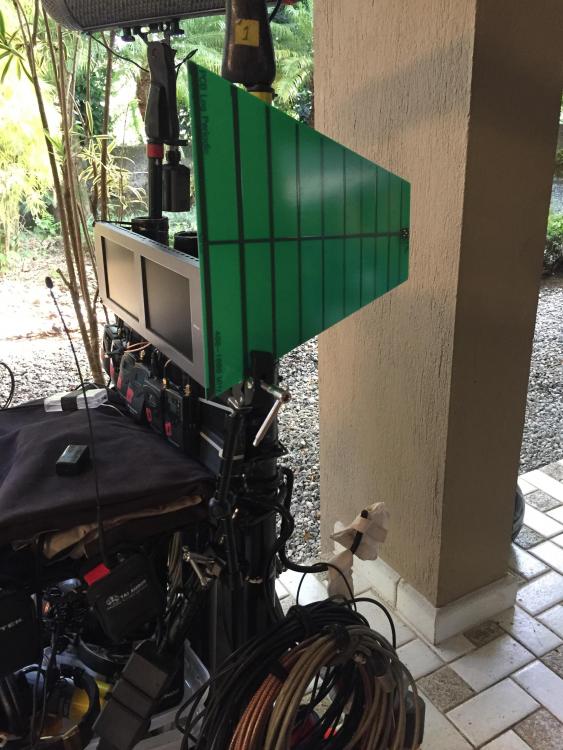
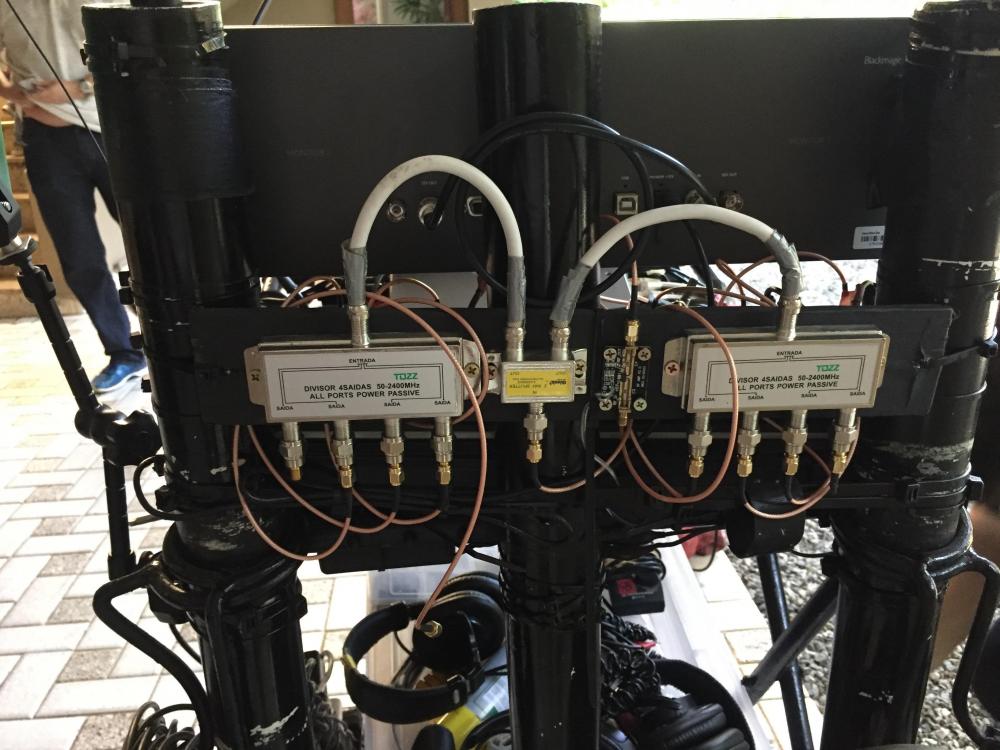
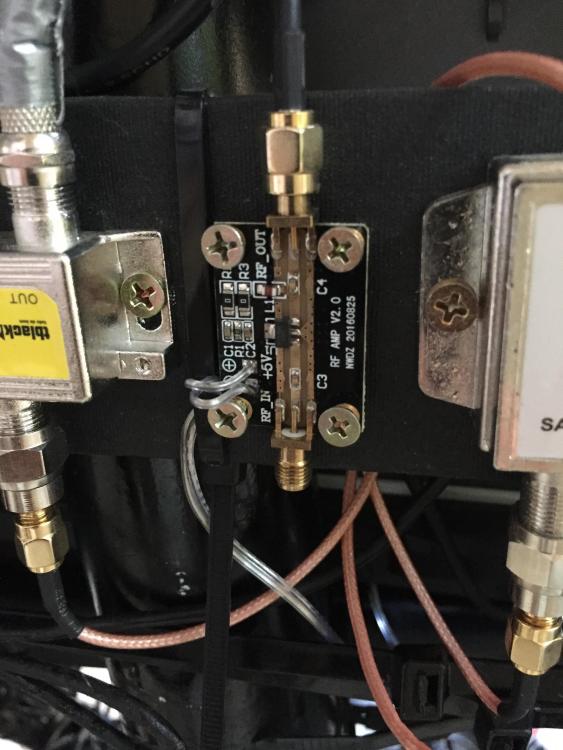
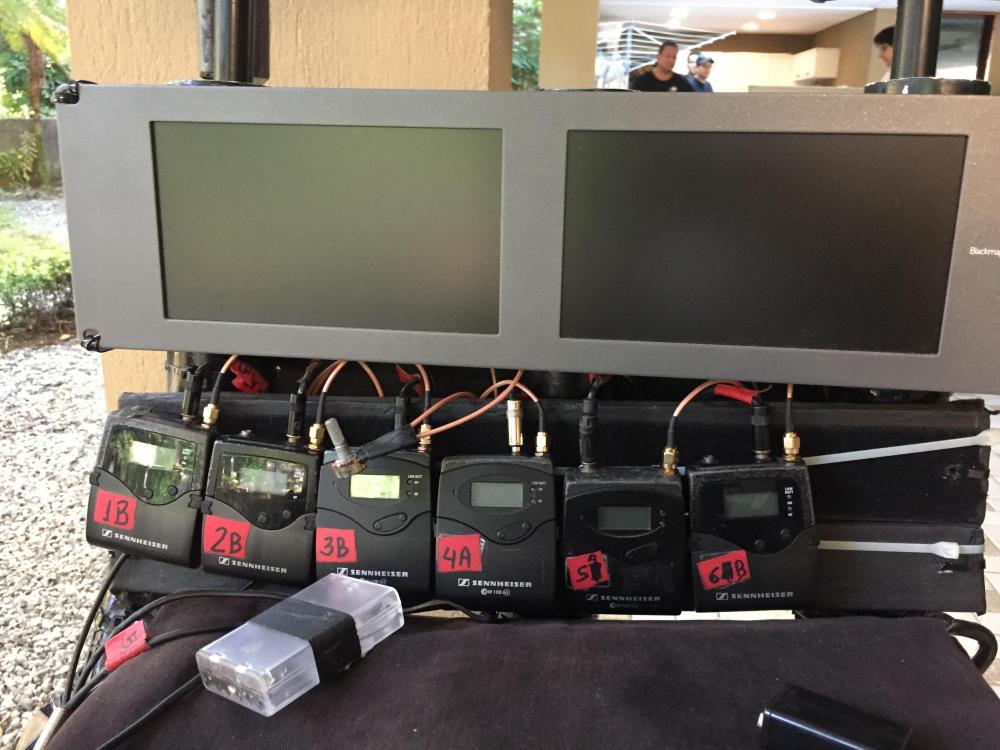
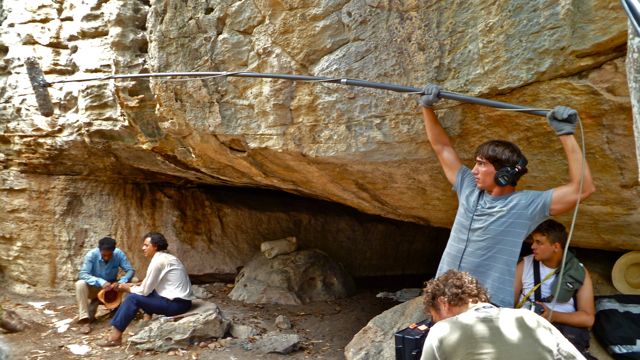
How often do you stick hidden lavs to skin vs to clothing? (assuming that the chest isn't hairy)
in General Discussion
Posted
I almost never place the lav in the talent's skin.
It may irritate their skin, in the first place, and it my cause pain if you're not carefull - or even if you are - when you take it off.
And It may fall easily when it's hot and there's sweat on the skin.
I live in Rio de Janeiro, Brazil so this is always the case.
I almost always place the mics in the clothes, 90% of times, with Rycote Overcovers.
No regrets from talent, great sound.